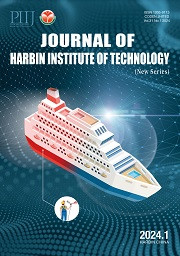| Author Name | Affiliation | Postcode | | Lida Luo | 1. State Key Laboratories for Modification of Chemical Fiber and Polymer Materials, Donghua University, Shanghai 201620, China
2. Engineering Research Center of Advanced Glass Manufacturing Technology, Ministry of Education, Donghua University, Shanghai 201620, China
3. Institute of Functional Materials, Donghua University, Shanghai 201620, China | 201620 | | Tan Yan | 1. State Key Laboratories for Modification of Chemical Fiber and Polymer Materials, Donghua University, Shanghai 201620, China
2. Engineering Research Center of Advanced Glass Manufacturing Technology, Ministry of Education, Donghua University, Shanghai 201620, China | 201620 | | Jin Liu | State Key Laboratories for Modification of Chemical Fiber and Polymer Materials, Donghua University, Shanghai 201620, China | 201620 | | Linfeng Ding* | 1. State Key Laboratories for Modification of Chemical Fiber and Polymer Materials, Donghua University, Shanghai 201620, China
2. Engineering Research Center of Advanced Glass Manufacturing Technology, Ministry of Education, Donghua University, Shanghai 201620, China | 201620 | | Qingwei Wang | 1. State Key Laboratories for Modification of Chemical Fiber and Polymer Materials, Donghua University, Shanghai 201620, China
2. Engineering Research Center of Advanced Glass Manufacturing Technology, Ministry of Education, Donghua University, Shanghai 201620, China
3. Institute of Functional Materials, Donghua University, Shanghai 201620, China | 201620 | | Wan Jiang | 1. State Key Laboratories for Modification of Chemical Fiber and Polymer Materials, Donghua University, Shanghai 201620, China
2. Engineering Research Center of Advanced Glass Manufacturing Technology, Ministry of Education, Donghua University, Shanghai 201620, China
3. Institute of Functional Materials, Donghua University, Shanghai 201620, China | 201620 |
|
| Abstract: |
| Basalt fiber (BF) is widely applied in the construction industry to improve the mechanical properties of construction materials. Recent studies show that BF has the potential to further enhance its performance via a crystallization approach. In this work, the glass-ceramic basalt fibers (GCBFs) were prepared through nucleation and crystallization treatments according to the crystallization kinetics calculations. Results from XRD and SEM show that GCBFs have main crystalline phases of Diopside and Augite reach crystallinity of around 46%±10%. In particular, the GCBFs sample with the largest mean crystal size maintains the lowest tensile strength of ~197 MPa (compared with the pristine BFs of ~737 MPa). Moreover, the weight loss and ion dissolution of GCBFs were explored in seawater environments and it was investigated that, GCBFs have better anti-seawater corrosion than the pristine BFs and have the potential to apply in the marine industry. |
| Key words: glass-ceramic, basalt fiber, tensile strength, crystallization, seawater environment |
| DOI:10.11916/j.issn.1005-9113.2022040 |
| Clc Number:TQ171.77 |
| Fund: |
|
| Descriptions in Chinese: |
| 玄武岩纤维因其具有优异的力学性能和耐腐蚀性性能,已被广泛用于建筑材料增强,用以提高材料和建筑的机械性能和化学稳定性。有研究表明,将玄武岩纤维通过晶化处理的手段,存在进一步提升其化学稳定性的趋势。在本研究中,我们通过对玄武岩玻璃的析晶动力学分析,运用核化、晶化处理制得了微晶玄武岩纤维。通过对纤维进行XRD、SEM表征,表明其存在主要晶相为透辉石和辉石,结晶度达到36%~56%之间。同时,发现玄武岩纤维微晶化后仍能保持机械强度,其中平均晶粒尺寸最大的样品其拉伸强度与原始纤维相比,强度保留率约为50%。此外,在耐化学稳定性研究中,我们将微晶玄武岩纤维在80℃的海水模拟液中浸泡24小时,分析溶液中的离子析出量和纤维的失重率,发现玄武岩纤维微晶化后耐海水腐蚀性能得以提升。因此,微晶玄武岩纤维有望在海洋工程材料的开发与应用中发挥一定的作用。 |





